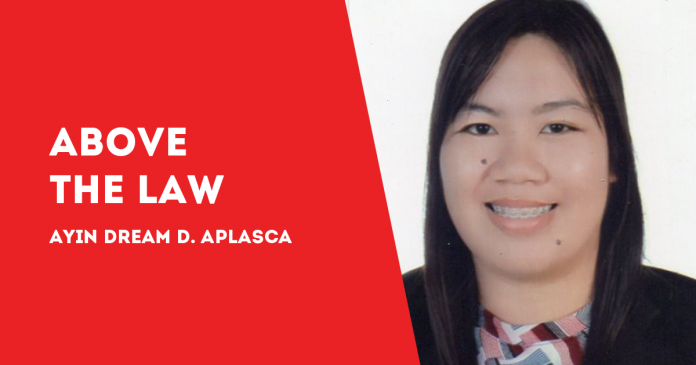
FOR THE past few months, the Supreme Court (SC) has issued several orders, circulars and memoranda to keep court proceedings moving even if the parties involved have to work remotely.
Still, some lawyers who are commissioned as notaries public are also worried on how to address their concern with their notarial practice.
One of the requirements to notarize documents is for the parties involved to appear in person before a notary public. However, the quarantine measures imposed in response to the pandemic has hampered the ability of people to appear in person.
It is very challenging because of the restricted movement of people and limited operations by lawyers who are notaries public.
This matter was given utmost attention. Friday last week, July 31, the SC approved the 2020 Interim Rules on Remote Notarization of Paper Document which allows notarization of documents thru video conference in cases where the notary public holds office in area under quarantine because of COVID-19.
The Rules is limited to the notarization of paper documents and instruments with handwritten signatures or marks through the use of videoconferencing facilities in cases where the notary public or at least one of the principals resides, holds office, or is otherwise situated in a locality that is under community quarantine due to the pandemic.
Notarization is important to acknowledge, affirm, and subscribe documents. All of these require the party to appear in person to confirm his or her identity.
In the recently approved Rules, documents that need to be acknowledged, affirmed, and subscribed should be presented to the notary public through the use of video conferencing.
The principal shall cause the delivery of the documents either through personal or courier service. It should be placed in an envelope sealed with the initials of the principal. If it is through a courier service, the principal is required to furnish the notary public details necessary to track the delivery.
If the principal is not known to the notary public, he or she is required to provide two copies of competent evidence which shall be placed in the envelope referred in the preceding paragraph. He or she is required to present this during the video conference with the notary public.
The principal is also required to submit a video clip showing that he or she actually signed the documents delivered. It may be stored in a CD or Universal Serial Bus (USB) which is also placed in the same envelope of the documents. He or she may choose to send the video through e-mail or other means of digital communications.
Upon receipt of the sealed envelope, the notary public shall schedule a video conference with the principal.
The procedure is the same when the documents bear the signatures of the witnesses. This procedure is also the same when it comes to parties who affix his or her thumbmark or other mark in lieu of his or her handwritten signature. However, in addition to this, he or she is required to affix his or her signature in the presence of two disinterested witnesses who shall sign in additional to the principal’s thumbmark or other mark.
When the principal is unable to sign, he or she shall follow the procedures set forth and during the video conference the notary public must confirm the inability of the principal to sign.
Same procedure when it comes to documents for copy certification. Though, the notary public should determine that the documents are not a vital record, a public record, or publicly recordable. If it is, the documents are sent back to the principal in his or her expense. If it is not, then the notary public may schedule a video conference with the principal.
The Rules are not applicable to execution of wills.
These procedures are of great help to the legal community especially that we are affected by quarantine measures and lockdowns. The increasing number of positive cases slows down important routines in our daily lives, thus, we need to find different ways how to survive and fight our way.
These procedures will safeguard the authenticity of documents and make them bindings even on third parties./PN

